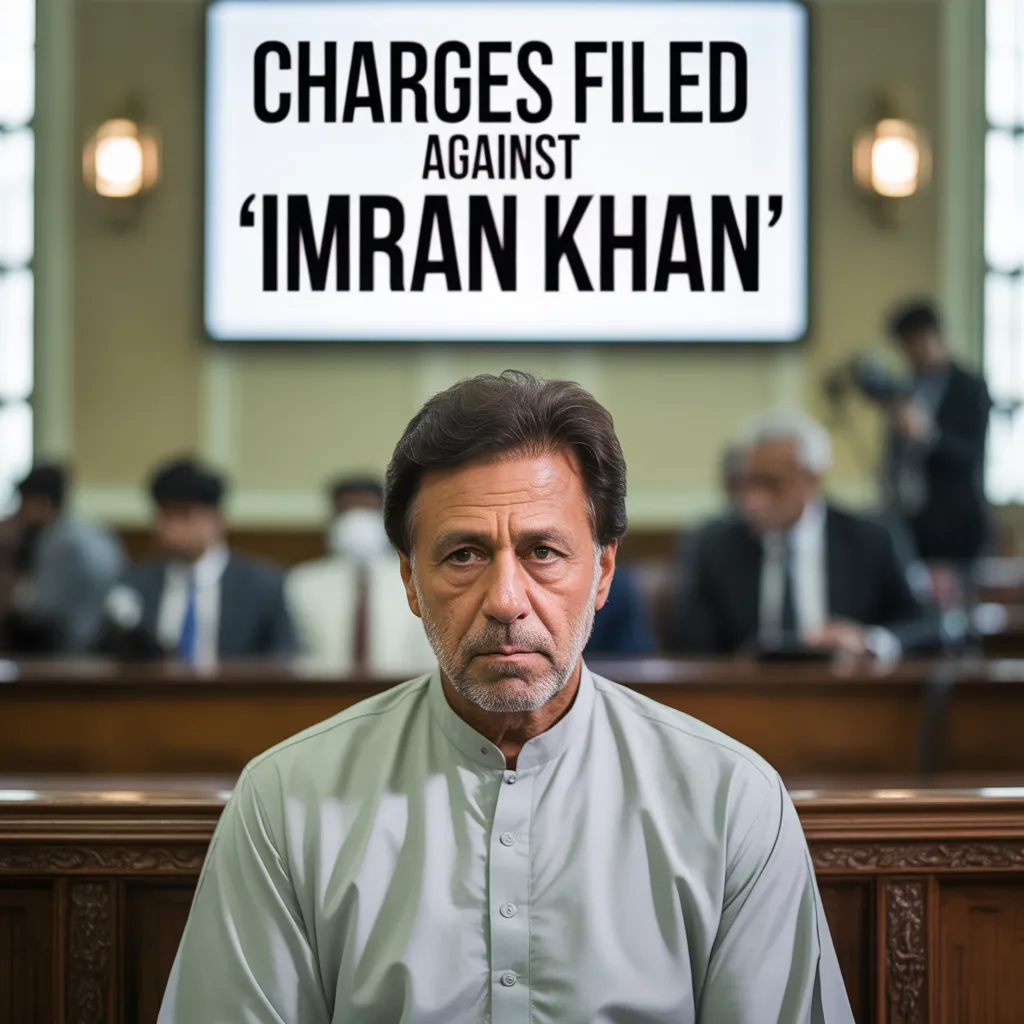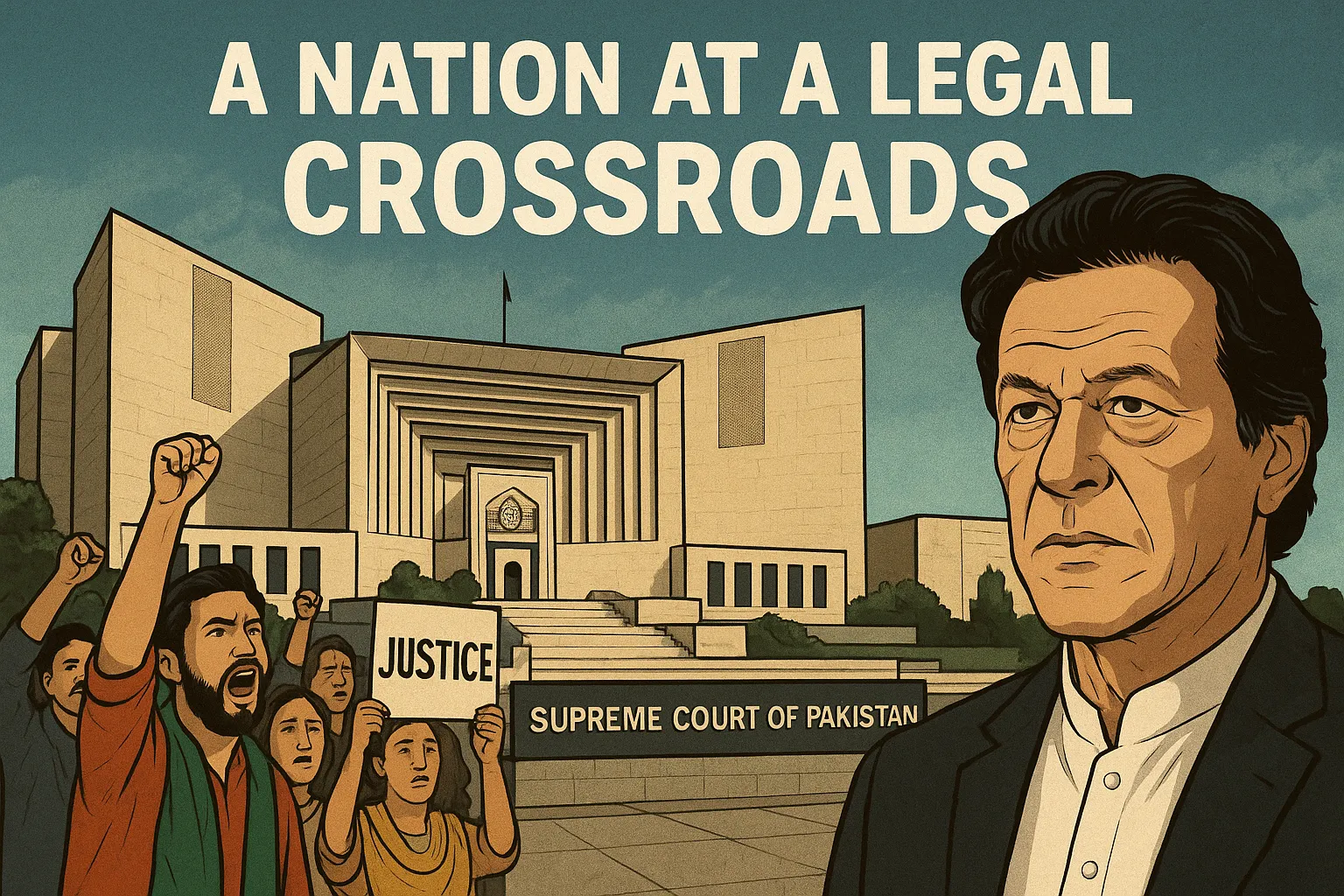The nation waits as judges prepare to decide on a case that could shape politics for years. The decision will affect power, public trust, and the path of government in Pakistan, making it a historic moment.
This moment shows how law and politics deeply connect in Pakistan today.
A Nation at a Legal Crossroads
The Supreme Court of Pakistan has taken up a case that could change the course of the country’s politics. The decision to hear Imran Khan’s post has triggered debates on law, democracy, and power. For many, this hearing is more than a legal step it is a test of the judicial independence in Pakistan and its democratic framework. Citizens, leaders, and institutions now wait to see what comes next.
Background of the Case
The legal challenges around Imran Khan case update have been building for months. After political tensions, protests, and multiple legal notices, the matter reached the Islamabad High Court and later the Supreme Court of Pakistan. This case stands at the center of the PTI political crisis, where legal issues are deeply tied with political struggles.
Also Read:Imran Khan Stats: Step Into a Legendary Career in 2025!
What Triggered the Court Hearing
The main reason the court ruling on political leaders became necessary was due to conflicting decisions in lower courts. The Chief Justice of Pakistan intervened to bring clarity and ensure the constitution is followed. The hearing is not just about one man it is about resolving the government vs opposition in Pakistan deadlock.
Source:Youtube
Who Is Imran Khan in This Context?
Imran Khan is not only a political leader but also the face of the Pakistan Tehreek-e-Insaf . His role as a former prime minister makes this case important for both law and politics. Supporters see him as a symbol of reform, while critics argue he has challenged institutions.
Charges Filed Against Imran Khan

Charges Filed Against Imran Khan as he appears in court facing legal proceedings.
The legal battle of Imran Khan involves charges related to corruption, misuse of authority, and protests. While his legal team denies the allegations, the Pakistani government stance claims there is enough evidence. These charges form the foundation of the case being heard.
| Key Charges | PTI’s Response | Government’s Claim |
|---|---|---|
| Corruption allegations | Denies wrongdoing | Claims misuse of office |
| Political protests | Calls them democratic rights | Calls them unlawful gatherings |
| Misuse of power | Denies evidence exists | Argues actions broke law |
Supreme Court Role and Jurisdiction
The Supreme Court of Pakistan is the highest authority to interpret the constitution. It has power to check both the Islamabad High Court rulings and government actions. The court’s decision will decide if the process was fair or politically motivated.
Legal Teams and Their Strategies
The defense team of Imran Khan is focusing on proving that the charges are politically motivated. On the other side, the Pakistani government stance highlights legal documents and past records to show misconduct. Each side is using constitutional law to strengthen their case.
Government’s Stance on the Issue
The government insists that no individual is above the law. Leaders argue that accountability is essential for democracy. Critics, however, believe that the PTI political crisis shows selective justice and political pressure. This divide fuels the larger political unrest in Islamabad.
Media Role in Shaping Narrative
The media coverage in Pakistan has played a big role in shaping public opinion. Some channels highlight the government’s side, while others focus on PTI’s arguments. This mixed coverage adds pressure on the judiciary to appear neutral.
Reactions from the International Community
The international community response has been cautious. Some human rights organizations expressed concern about political targeting. Foreign governments are watching closely, as the decision could impact Pakistan’s ties with the world.
Potential Outcomes and Their Impact
There are three possible outcomes:
| Outcome | Possible Impact |
|---|---|
| Ruling favors Imran Khan | Boost for PTI, political comeback |
| Ruling favors government | Strengthens current regime |
| Balanced ruling | Could ease tensions, restore balance |
Each scenario will shape the Pakistan democracy challenges in new ways.
What This Means for Pakistan Democratic Future
This case is more than a trial—it is a test of Pakistan’s ability to move forward as a democratic state. The democratic future of Pakistan depends on whether courts can act fairly and independently. The verdict will either restore public trust or deepen political divisions.
Conclusion
The legal battle of Imran Khan before the Supreme Court of Pakistan is not just a case. It is a turning point for law, politics, and democracy. The ruling will influence the government vs opposition in Pakistan, the political unrest in Islamabad, and the world’s view of Pakistan’s democratic journey. Whether the verdict brings unity or further crisis, it will leave a mark on the country’s history.
FAQs
Q1: Why is the Supreme Court hearing Imran Khan’s post so important?
It is important because it connects law with politics and could reshape the balance of power in Pakistan.
Q2: How does this case affect PTI and its supporters?
The case could either clear Imran Khan (person) for political return or weaken the Pakistan Tehreek-e-Insaf (PTI) further.
Q3: What role does the international community play here?
The international community response adds pressure on Pakistan to ensure fair and transparent legal proceedings.
Q4: What could this mean for Pakistan’s democracy?
It could test the judicial independence in Pakistan and decide if the democratic future of Pakistan can move forward with stronger institutions.




Join The Discussion